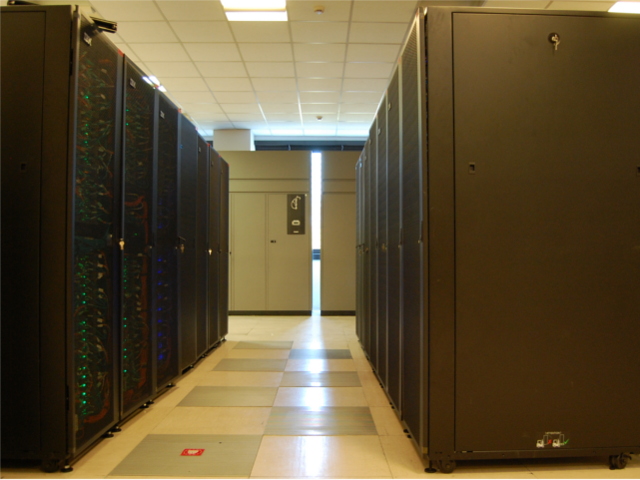The new Cineca Supercomputing, GALILEO: a collaborative effort by Cineca, INFN and Bicocca
- /
- News
- /
- The new Cineca Supercomputing,...

After a short period of testing, Galileo, the new supercomputer installed at Cineca, came into full production. The investment is the collaborative effort between INFN and University of Milano-Bicocca, which partially funded the acquisition costs of the new system.
Galileo joins to Fermi, the more powerful supercomputer in Italy for academic research, which initiated the collaboration between Cineca and INFN. The framework agreement, signed in 2012, provides for development of research and development activities in the field of high-performance scientific computing in the areas of High Energy Physics, Astroparticle Physics and Nuclear Physics.

The positive results derived from the ongoing collaboration led INFN to an additional investment to which is also associated with the University of Milan-Bicocca. Jointly mobilised economic resources have allowed the acquisition of Galileo, an IBM/Lenovo Nextscale computer that is configured with 516 nodes for a total of 8256 processors, it able to express a computational power peak of over 1 PetaFlop/s (one million billion operations per second).
Galileo is dedicated to scientific and engineering computing and it is available to Italian research.
Thanks to this new system it will be possible to solve scientific problems of interest to the most current research, and also to enhance strategies and programs that can be supported internationally in order to gain access to the most powerful European supercomputing centers, as PRACE, the research infrastructure for advanced computing, funded by the European Commission.
"Galileo will make a significant contribution to research in computational theoretical physics at INFN", explained Raffaele Tripiccione, coordinator of the activities in the field of Computational Physics at INFN, "by providing appropriate calculation tools to support the ambitious underway scientific programmes in the areas of Physics for fundamental interactions and Physics of complex systems."
"The co-financing of Galileo – reported Sanzio Bassini, Director of High Performance Computing department of Cineca – is a fine example of pooling of expertise and resources between the different actors of the national research system, to be more efficient and to have in Italy a competitive computing infrastructure despite the limited resources available".
"The scientific challenges of our time require research quality and adequate tools", stated Federico Rapuano, Professor of Theoretical Physics at the University of Milano-Bicocca and member of the Management Committee of the agreement between Milano-Bicocca and Cineca, together with Marco Bernasconi, Professor of Condensed Matter Physics at Milan University. "Our University with this investment aims to consolidate the results so far achieved and to compete successfully in the scenario of research excellence at international level in various fields of computational science in which different groups of our University are involved ".
Technical Information
Galileo is an IBM/Lenovo Nextscale supercomputer configured with 516 nodes for a total of 8256 Intel Haswell processors, 768 floating point accelerators Intel Phi and 80 floating point accelerators NVIDIA K80, 1 petabyte of disk space and a computational power peak of more than 1 petaflop/s (one million billion operations per second).